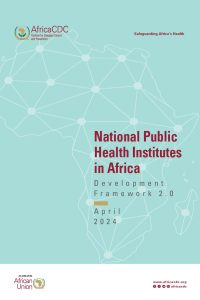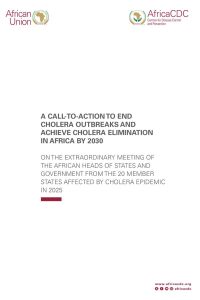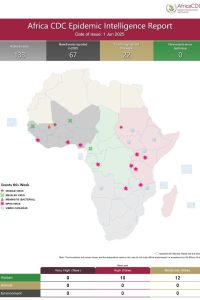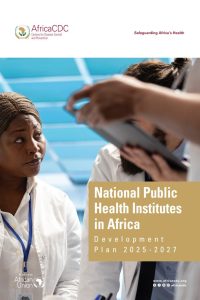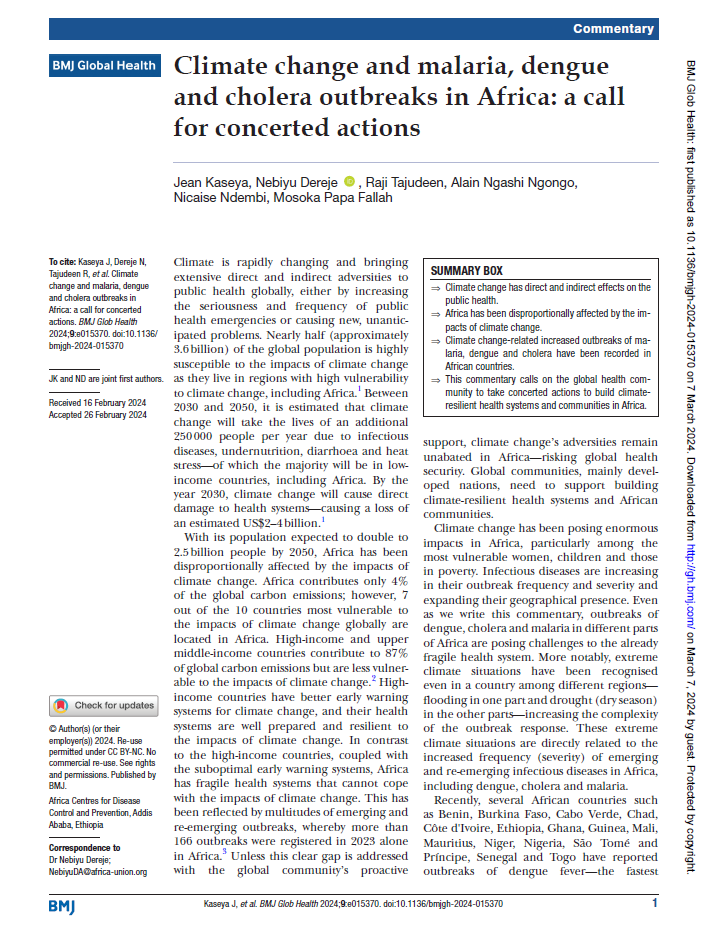
- Version
- Download 1699
- File Size 204.84 KB
- File Count 1
- Create Date 9 March 2024
- Last Updated 12 March 2024
Climate change and malaria, dengue and cholera outbreaks in Africa: a call for concerted actions
Climate is rapidly changing and bringing extensive direct and indirect adversities to public health globally, either by increasing the seriousness and frequency of public health emergencies or causing new, unanticipated problems. Nearly half (approximately 3.6 billion) of the global population is highly susceptible to the impacts of climate change as they live in regions with high vulnerability to climate change, including Africa. Between 2030 and 2050, it is estimated that climate change will take the lives of an additional 250 000 people per year due to infectious diseases, undernutrition, diarrhoea and heat stress—of which the majority will be in low-income countries, including Africa. By the year 2030, climate change will cause direct damage to health systems—causing a loss of an estimated US$2–4 billion.
With its population expected to double to 2.5 billion people by 2050, Africa has been disproportionally affected by the impacts of climate change. Africa contributes only 4% of the global carbon emissions; however, 7 out of the 10 countries most vulnerable to the impacts of climate change globally are located in Africa. High- income and upper middle- income countries contribute to 87% of global carbon emissions but are less vulnerable to the impacts of climate change.
Attached Files
| File | Action |
|---|---|
| Climate change and malaria, dengue and cholera outbreaks in Africa: a call for concerted actions | Download |

